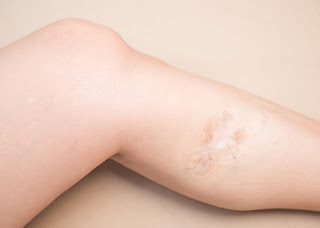Nose Surgery - Meet Rhinoplasty
The nose is a fundamental element of the harmony of our face, often small changes in its shape, such as a small gibbon, or the discreetly dropped tip can generate dissatisfaction, or reflect an aspect of personality that does not represent us. To correct the appearance of the nose many people resort to plastic surgery, called rhinoplasty.
Rhinoplasty in Delhi is an alternative that we can take into consideration when it comes to refining the beauty of the nose. With diversified techniques, it can alter the appearance of the nose according to the patient’s desire and of course, medical indication.
The Possibilities in Rhinoplasty
There are numerous possibilities with the method. It is possible, for example, to increase or decrease the nose, to give projection to the tip, to correct the asymmetry or nasal deviation, to fine the nasal wings, to define the nasal tip or to decrease the bone.
The Emergence of Rhinoplasty in Nasal Reconstruction
The practice comes from antiquity, with cases of nasal reconstruction, described in India, and translated around the 6th century – aesthetic rhinoplasty is estimated to have been developed at the end of the 19th century.
Today, the technique has been improved with extensive knowledge of physiology and nasal anatomy.
There are two most common accesses of rhinoplasty: open and closed (depending on the type of scar). The technique varies depending on the model of the nose, the purpose of the surgery and the evaluation of the plastic surgeon in Jammu.
Open Rhinoplasty
In open rhinoplasty a small incision is made through the columela – a narrow band of tissue that stifls the norins. Through this incision, the tissues that cover the nose are carefully lifted, allowing access to reshape the structure of the nose. It is a solution indicated, for example, in cases of major changes in the tip of the nose – since it is possible to carve it with greater freedom, says best plastic surgeon in Delhi.
Closed Rhinoplasty
In closed rhinoplasty there are incisions only inside the nostorines, without lifting the skin of the nose. In this case there are some advantages, such as the procedure being a little more agile, and there are no external scars.
Post-Operative Rhinoplasty
In both cases the postoperative period is usually pain-free, and when it appears it is easily solved with the use of analgesics. The formation of hematomas is common and complete absorption takes place in about 20 days. A kind of internal plaster and cap support the nose as the surgery begins to heal for about a week.
While the initial swelling subsides within a few weeks, it may take up to a year for the new nasal contour to be completely reset. During this period, the swelling may appear and disappear and be a little larger in the morning. Often surgery is also associated with other nasal procedures such as septal correction and turbinectomy, says best plastic surgeon in Jammu.
Why Opt for Rhinoplasty?
In addition to generating a beautiful appearance for the face, Rhinoplasty can produce functional improvement effects, and can improve the patient’s breathing. In some cases, it can be performed in conjunction with Septal Bypass surgery.
What should I consider before opting for Rhinoplasty?
It is important to note that each of us has our own genetics, so it is not possible to choose a nose that we intend to have (for example, based on an actor or actress).
The ideal is to fix and perfect your nose to make it more harmonic to the face and help you look better, suggests plastic surgeon in Delhi.


Comments
Post a Comment